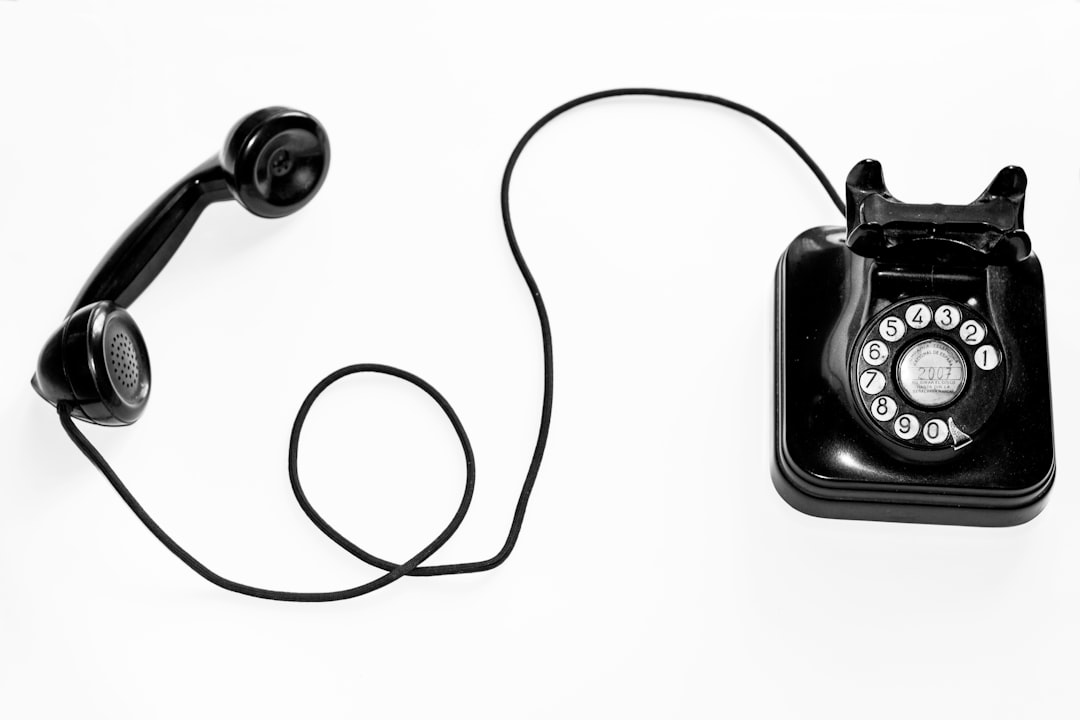In Illinois, where autodialer usage is heavily regulated to protect consumers from unwanted calls, law firms must ensure prior express consent for automated calls and adhere to strict guidelines. Legal audits are essential to verify compliance with federal and state telemarketing laws, including do-not-call lists and consumer consent. Common pitfalls include assuming reduced oversight and misclassifying autodialer practices as universally problematic. Successful audits involve script reviews, call record checks, contact list accuracy, data security measures, employee training, and monitoring of call volumes and feedback. Case studies demonstrate how law firms in Huntley, Illinois, have navigated these complexities to maintain ethical reputations among autodialer law firms Illinois.
In the digital age, autodialers have become a ubiquitous tool for communication, but their use also raises legal considerations, particularly in Illinois. This article delves into the intricacies of conducting legal audits on autodialer practices within Huntley, IL, focusing on key regulations and compliance strategies for law firms. By understanding the common pitfalls and exploring successful case studies, legal professionals can ensure adherence to autodialer laws, fostering ethical and effective communication with clients. Discover best practices tailored to Illinois’ autodialer landscape.
Understanding Autodialer Regulations in Illinois: A Legal Overview

In the state of Illinois, the use of autodialers and automated communication technologies is heavily regulated to protect consumers from unwanted or unsolicited calls. The Illinois Administrative Code outlines specific guidelines for businesses engaging in telemarketing activities, including those utilizing autodialers. These regulations aim to ensure fair practices and provide a clear framework for both businesses and consumers.
The key aspect of the autodialer law firms in Illinois is the requirement to obtain prior express consent from recipients before making automated calls. This means that businesses must have explicit permission, often obtained through opt-in mechanisms, to use autodialers. Non-compliance can lead to significant legal repercussions, including fines and damage to the company’s reputation. Understanding these regulations is crucial for law firms advising clients on autodialer practices to ensure adherence to state laws and avoid potential legal disputes.
The Role of Legal Audits in Ensuring Compliance with Autodialer Practices

Legal audits play a pivotal role in ensuring compliance with autodialer practices, especially for law firms in Illinois navigating the complex landscape of telemarketing regulations. These comprehensive reviews act as a safeguard, meticulously scrutinizing how autodialer systems are employed to make outbound calls or send text messages. By delving into the technical aspects and operational procedures, legal audits identify any potential breaches of consumer protection laws and Fair Debt Collection Practices Act (FDCPA) guidelines.
Through random sampling and detailed analysis, these audits verify that autodialers adhere to essential criteria, such as obtaining proper consent, providing opt-out mechanisms, and respecting time zones. This proactive approach not only helps law firms maintain compliance but also fosters trust with their clients and the broader Illinois legal community, demonstrating a commitment to ethical and responsible marketing practices in the digital age.
Key Areas to Focus On During an Audit: Best Practices for Law Firms

When conducting legal audits of autodialer practices in Huntley, Illinois, law firms should focus on several key areas to ensure compliance and best practices. The first area involves reviewing the firm’s autodialer scripts and call records for adherence to federal and state telecommunications laws, including those related to do-not-call lists and consumer consent. Auditors should also examine how the firm manages and maintains its contact lists, ensuring they are accurate, up-to-date, and obtained through lawful means.
Additionally, best practices demand a thorough assessment of data security measures in place to protect consumer information collected via autodialing. This includes verifying encryption protocols, access controls, and secure storage methods. Auditors should also look into the firm’s training programs for employees involved in autodialer operations, ensuring they are adequately educated on compliance requirements and ethical marketing practices. Regular monitoring of call volumes, complaint rates, and consumer feedback is another crucial aspect that can help law firms maintain high standards in their autodialer usage.
Common Pitfalls and Misconceptions About Autodialer Compliance Audits

Many businesses, especially law firms in Illinois, often overlook the intricacies and importance of autodialer compliance audits. This can lead to a range of common pitfalls and misconceptions. One major misconception is that because autodialers are automated, they require less scrutiny. In reality, these technologies must adhere to strict legal guidelines to ensure consumer privacy and protection against unwanted calls, such as those enforced by the Telephone Consumer Protection Act (TCPA). Audits should not be seen as a one-time event but rather an ongoing process to stay compliant with evolving regulations.
Another pitfall is assuming that all autodialer practices are inherently problematic. In truth, many law firms use autodialers responsibly for legitimate outreach purposes. However, without proper audit procedures, it’s easy to inadvertently violate rules regarding consent, call frequency, and content. Autodialer law in Illinois demands meticulous record-keeping and clear evidence of consumer opt-in or explicit permission. Misinterpreting these requirements can result in costly legal repercussions, including substantial fines and damage to a firm’s reputation.
Case Studies: Successful Legal Audits of Autodialer Usage in Huntley, Illinois

In recent years, legal audits of autodialer practices have become increasingly common in Huntley, Illinois, as law firms seek to ensure compliance with local and federal regulations governing telemarketing. Case studies of successful audits provide valuable insights into effective strategies for navigating these complex issues. For instance, a leading Illinois law firm recently conducted an audit that uncovered several violations related to the improper use of autodialers, including failing to obtain prior consent from recipients and making calls during restricted hours. By addressing these issues promptly and implementing stricter internal controls, the firm not only mitigated potential legal consequences but also enhanced its reputation for ethical business practices among clients and peers in the autodialer law firms Illinois market.
Another notable audit involved a mid-sized local law practice that successfully navigated a challenging situation. They discovered that some of their calls were classified as unsolicited by regulatory bodies, leading to a potential fine. Through meticulous record-keeping and a detailed analysis of call data, the firm demonstrated that they had obtained proper consent in many cases and that any non-compliance was due to isolated errors rather than systemic issues. This approach allowed them to resolve the matter without significant penalties, solidifying their position as a responsible player in the autodialer law firms Illinois community.






